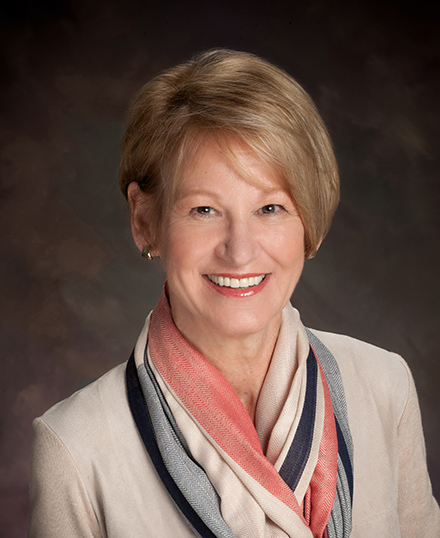Accounting firms, like other professional services, retreated to survival mode when the COVID-19 pandemic shut down the economy early this year.
Firms transitioned their teams to work-from-home, supported struggling clients, navigated the government’s Paycheck Protection Program (PPP) for themselves and their clients, and confronted multiple urgent issues and existential threats.
Not surprisingly, strategic planning took a backseat.
“It was ‘Forget the future! We’ve got to bail water out of the boat right now,’” says Gale Crosley, CEO of Crosley+Company, an advisor on growth strategies for accounting firms. “The growth of the firm and the protection and growth of revenues are among the many things that were not front and center,” Crosley adds.
That’s changing. Proactive, innovative accounting firms are now pursuing growth opportunities that have emerged despite the pandemic-driven economic downturn — and because if it, she explains. “When market conditions shift, it is an opportunity for growth. And whenever a business changes, whether it’s going up or it’s going down, they need help.”
Innovate & customize new offerings
Change creates new needs for companies to confront challenges and seize opportunities — and addressing those needs create opportunities for accounting firms. Precisely what a firm should offer, of course, depends on the client’s industry sector and circumstances. “When market conditions shift it’s time to shift your strategy, and the strategy of choice today is to innovate another service that your client wants,” Crosley says. “Go out and interview a bunch of people in each of your markets. You’ll find out quickly what their top issues are. You listen to the market and… shift your services immediately.”

For example, in the wake of the pandemic shutdowns many accounting firms shared information with their clients about tapping the PPP — but one of Crosley’s clients went a step further. They created a three-tiered PPP service offering and conducted PPP webinars that were customized by industry and featured a partner, such as a supplier or consultant with sector-specific expertise. The firm and the partner were able to engage each other’s clients and prospects who, in turn, gained insights that were actionable because they were specific to their industry.
“They customized the service and the message and the thought leadership content,” Crosley notes. “That’s an example of what I’m talking about — a higher level of sophistication and innovation.”
Embrace a virtual service model
A successful transition to working from home during the shutdown showed accounting firms that their practices need not be limited by locality. “What we’re seeing is that we can, in fact, drive demand without having to go out into that market personally,” Crosley says. “We can, in fact, sell and innovate and do all these things, and we don’t have to be on site… . Right now, I’m working with firms, and I’m saying, ‘You have a national footprint if you want to declare it so. It’s only a matter of declaring and then executing.’
“They’re realizing that the only tether they really have is their mobile device. Otherwise, you can be anywhere.”
Enhance specialization
The key to becoming a virtual firm with no boundaries is having a sought-after specialty service line or industry-specific expertise. Indeed, Crosley counsels her clients to deploy a three-part growth strategy plan consisting of i) the service to be offered; ii) the people or organizations that need the service; and iii) distribution channels, showing how you and buyers will find each other in greater quantities in order to scale.
Because of the pandemic, firms have mastered technology that enables them to serve clients remotely, and as a result, client expectations have changed by, for example, reducing the need for face-to-face meetings.
An accounting firm with expertise serving the agriculture sector in Great Bend, Kansas, for instance, should realize it’s not restricted to just those clients in its own backyard. “There are a lot of farms in Kansas,” Crosley observes. “But there are farms all over the United States.” A firm aspiring to offering virtual ag-specific accounting services should:
- Conduct research to identify potential markets — For example, farm production surpasses $20 billion in four states, including Iowa and Nebraska, which neighbor Kansas. California’s food production alone is nearly $50 billion.
- Through additional research, identify distribution channels to engage potential buyers — Trade publications, industry associations, events, service providers, thought leaders, and other avenues can help here. “You do a lot of research on the internet as to who are the movers and the shakers in the California market, you start interviewing people out there, and you find the distribution channels,” Crosley suggests. “If you think about how you and buyers find each other, it’s where they congregate physically or mentally. What publications they read, what associations they go to, and from whom they buy their products.”
- Talk with leaders in these channels to identify critical business issues facing farms in the targeted markets — “You’re going to do interviews and say, ‘Tell me, what’s going on in California? What are the top issues?’” Crosley says. “Then you can determine how to align your interests to the interests of these distribution channels.” If, for example, an accounting firm finds that many farm families lack a next generation to take over, it can engage with a relevant channel such as succession consultants who work with farmers in California, identify their objectives, and align around shared objectives such as developing the California market.
“I bet most of them are getting their tax returns done,” Crosley continues. “So, I wouldn’t say, ‘I’m going to come into California and sell tax return services to every farmer.’ That market is saturated with a lot of CPAs in California. They don’t need another one who does tax returns.”
Rather, she says, they should follow their strategic growth strategy plan. “This is just going to take specialization to a whole new level,” she adds.



